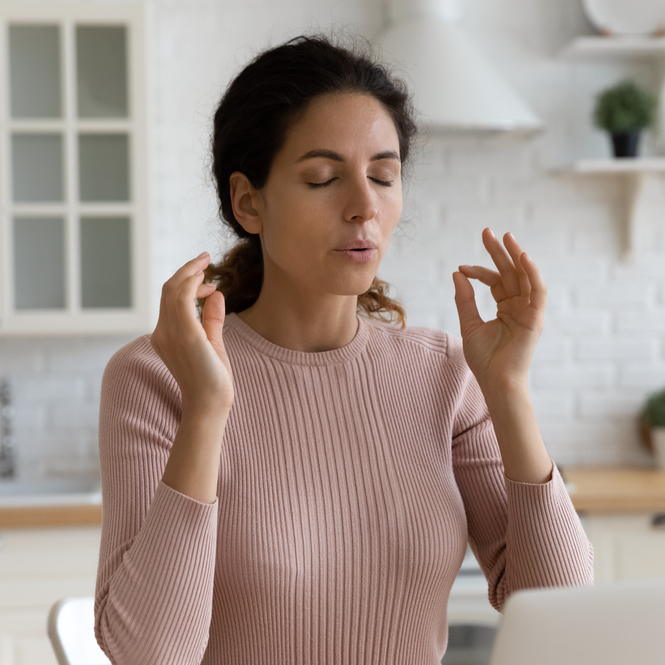Words by Kate Lucey
5 Minute Read
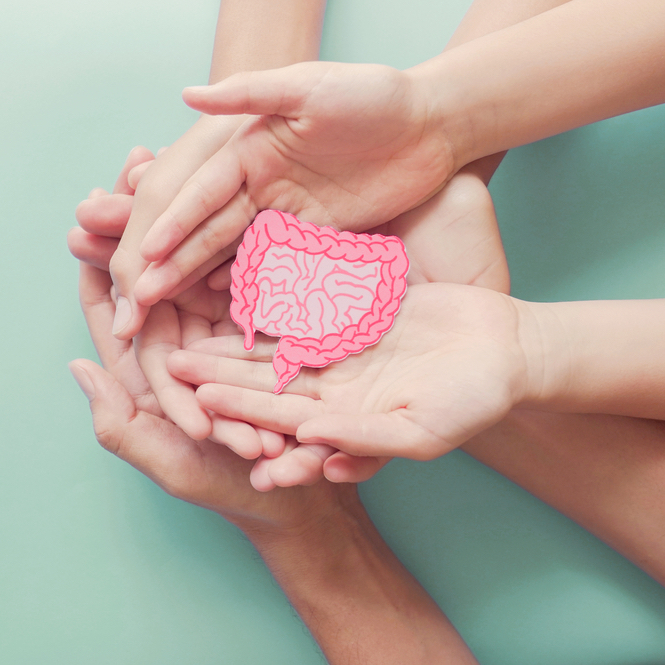
The connection between our brains and our guts is stronger than you might have thought. Can a happy gut really result in a happy mind? Science says YES, and here’s how…
It’s fair to say that a lot of us have complicated relationships with food, and when we’re feeling a particular emotion quite strongly, it tends to affect our appetite. Often when we’re sad, we reach for a comforting pint of ice cream. When we’re stressed, some of us will lose our appetites altogether, while others will eat entire packets of jammy dodgers as a coping mechanism.
This is a huge generalisation, but long periods of stress, anxiety and depression can deplete the levels of serotonin in our bodies. Serotonin is something that we produce naturally, and is a chemical that helps us feel happy, confident and self-assured. Low levels of serotonin don’t make people feel great at all, and can sometimes lead to people with depression being prescribed a particular kind of antidepressant that tries to balance out serotonin levels within the body.
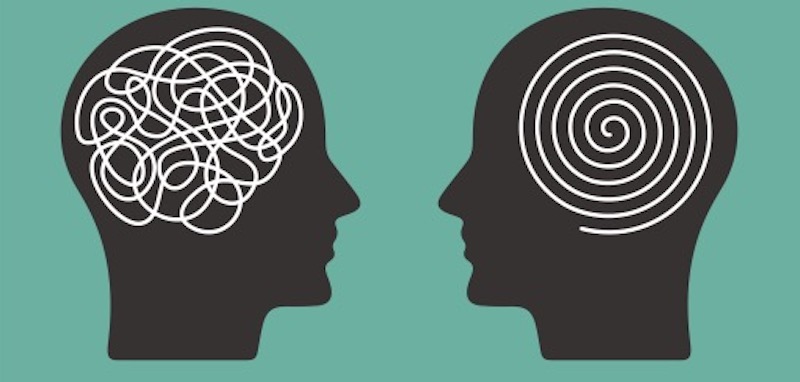
WELL. The majority of our serotonin (up to 90%) is, in fact, produced in our gastrointestinal tract. It’s the same as serotonin that we make in our brain, but made from different types of cells and with different functions compared to brain-made-serotonin. Serotonin in our digestive tract regulates function and movements of the bowel – which explains why The Anxiety Poops are a thing.
So, if we need serotonin in order to feel less anxious or depressed, and the majority of serotonin is made in our digestive system, can we choose certain foods or diets to make sure we produce more serotonin naturally? Dr Hendy, also known as The Better Gut Doctor, says yes.
“In particular, studies have found that individuals with depression consumed less fibre and conversely those that ate a high-fibre diet were less likely to be depressed,” Dr Hendy tells WYLDE MOON. (Here’s a useful NHS guide for adults and children for adding more fibre to our diet.)
There is a whole bunch of research to prove that what we put in our mouths has a direct relation to not only our physical health, but our mental health, too. Half of the nutrition our bodies receive goes straight to our brains, so this goes much further than ‘I feel really fantastic when I’ve had a Kit Kat Chunky’.
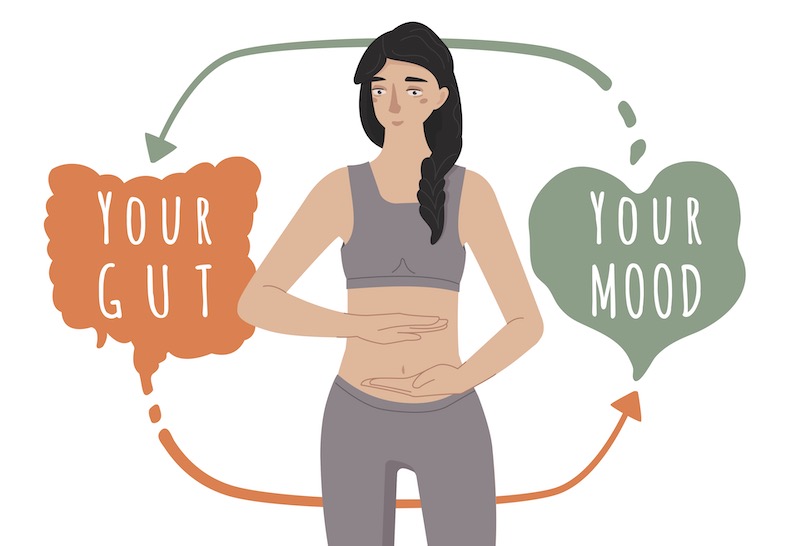
Our gut and our brain are connected by the vagus nerve, and what we put into our bellies makes a difference to our brains.
There’s been so much research about the impact food has on our mental wellbeing, and the relationship between our guts and our brains has been pretty well documented. It’s known that our gut and our brain are always chatting to each other via our vagus nerve (which runs from your brain through your face and thorax right down to the abdomen), a bit like they’re on either end of a tin telephone.
But (there’s always a but), we’re all built differently, and what works for some might not work for others. What about those of us who have already worked with this kind of gut-healing, via food, and not found much benefit?
Dr Hendy suggests there are additional, non-eating, things we can do to help improve our gut and thus our mental health.
“The whole person must be taken into account, and other factors such as sleep, exercise, sense of purpose, feeling supported and consideration of medication as advised by one’s doctor all play a role,” he says.
“Lack of sleep can affect the gut, leading to a host of issues including bloating, inflammation, stomach pains, food sensitivities and changes to the gut microbiome. Physical activity can help to boost our mood – try adding exercise into each day, such as a short walk outside in nature or under a blue sky (or even a grey one if that’s the best available).”
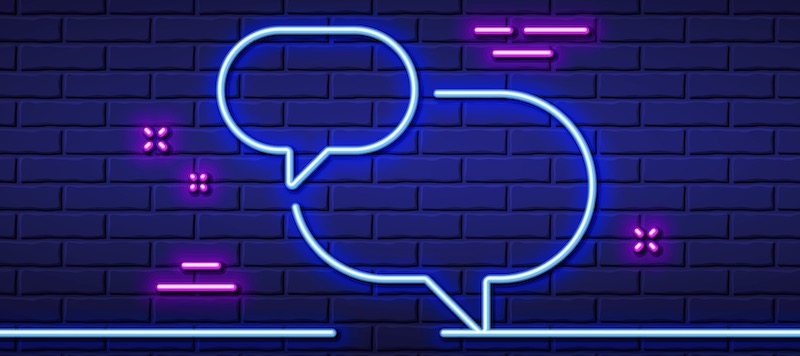
Now, this last piece of advice is surprising. “Having a sense of community is also important – research has found that sociable people have a higher abundance of certain gut bacteria,” says Dr Hendy. He advises us to “try to make social connections every day – whether that’s getting in touch with a friend or family member for a chat, or talking with someone at the supermarket checkout.
“The beneficial effects of a healthier diet may not give you an immediate mood boost, but they will reduce your risk of many long term physical and mental health conditions, which has to be a good thing!”
Dr Hendy is from The Better Gut, a doctor-led community dedicated to helping everyone enjoy better gut health. Find out more here.
Share this article…





